High-ticket sales refer to the process of selling high-value products or services that typically have a higher price point than standard offerings. In this article, we will delve deeper into the concept of high-ticket sales, discussing its definition, advantages, disadvantages, and providing real-world examples to illustrate its application in various contexts
1°) What is High-Ticket Sales?
High-ticket sales can be defined as the sale of products or services that carry a significant price tag. While the exact threshold may vary depending on the industry, high-ticket items generally exceed a certain dollar amount, signaling a substantial investment for the buyer. This could include luxury goods, high-end technology, premium services, and exclusive experiences.
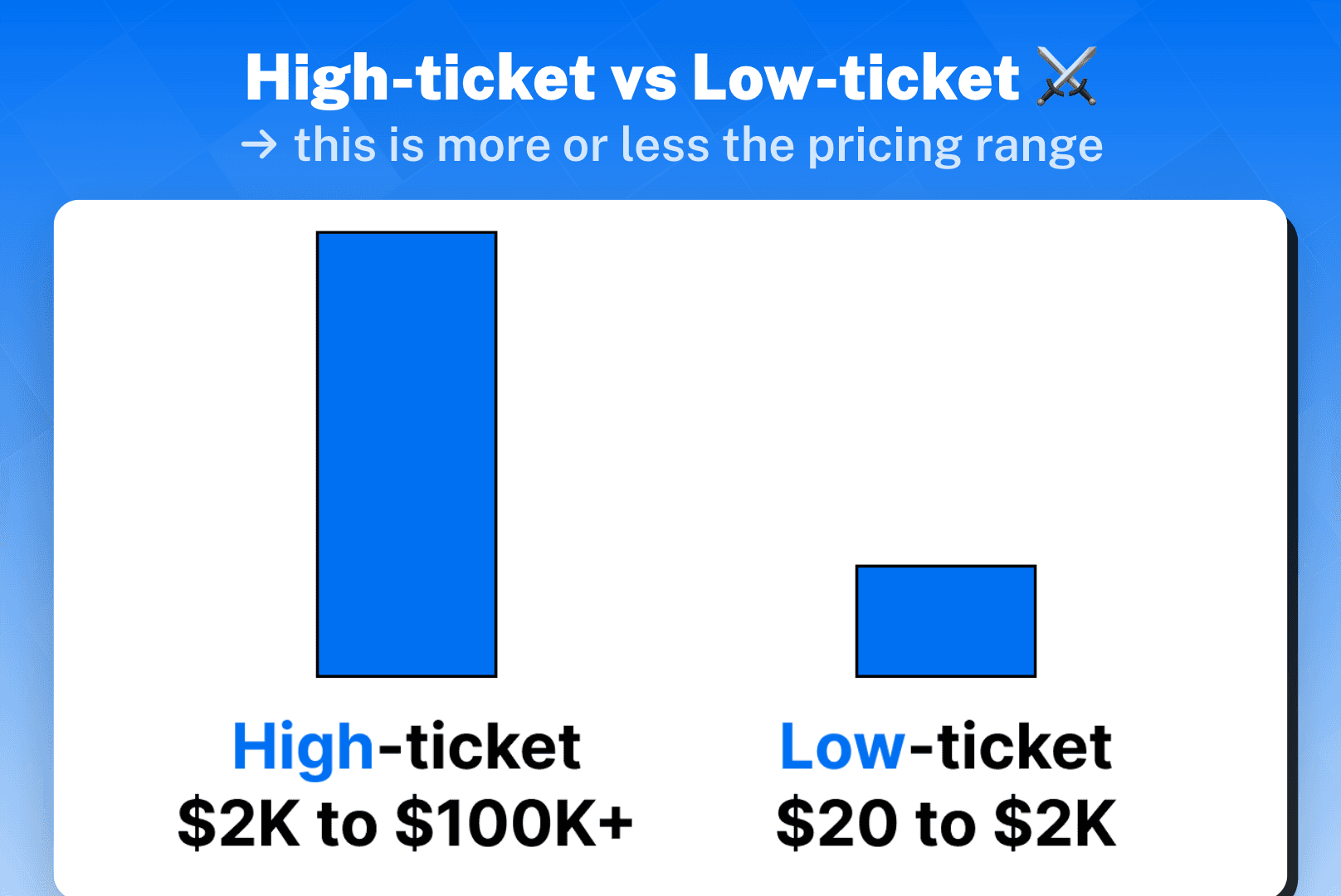
1.1 - Definition of High-Ticket Sales
High-ticket sales refer to the process of selling products or services that have a high monetary value. These items often come with a substantial price tag, making them a significant investment for potential buyers. The threshold for what constitutes a high-ticket sale may vary across industries, but the underlying principle remains the same: these transactions involve substantial financial commitments.

For example, in the luxury goods industry, high-ticket sales could include items such as high-end watches, designer handbags, or rare collectibles. In the technology sector, it could involve selling cutting-edge gadgets or premium software application development solutions. Similarly, in the service industry, high-ticket sales might involve offering exclusive consulting services or personalized coaching programs.
In the technology sector, it could involve selling cutting-edge gadgets or premium software application development solutions. Similarly, in the service industry, high-ticket sales might involve offering exclusive consulting services or personalized coaching programs.
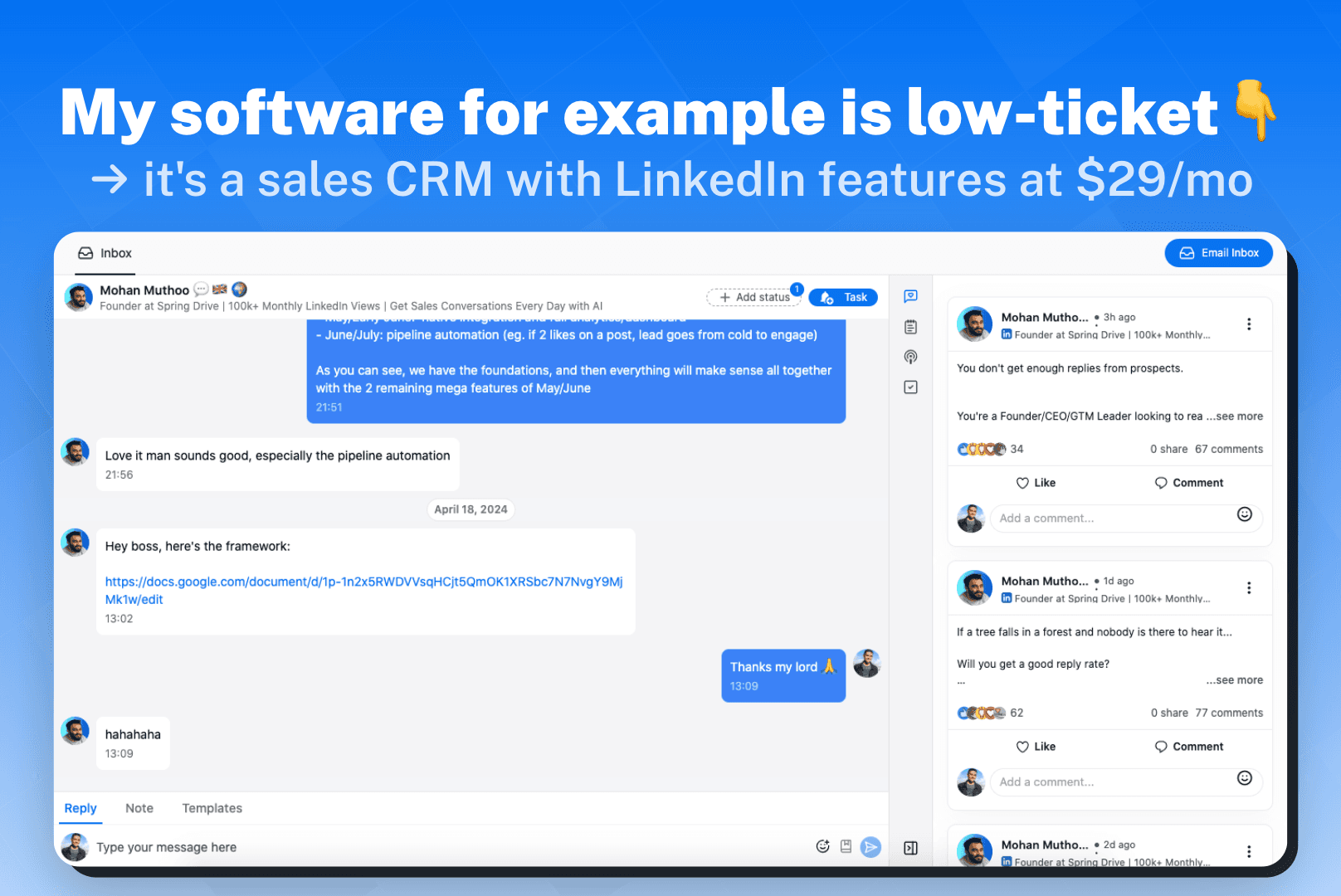
On the opposite, a low-ticket offer can be my sales CRM which integrates with LinkedIn which starts at $29/mo - you can check it out here.
What sets high-ticket sales apart from regular sales is the significant financial commitment required from the buyer. These transactions often involve a more complex decision-making process, as buyers carefully evaluate the value and benefits they will receive in exchange for their investment.
1.2 - Advantages of High-Ticket Sales
There are several advantages to engaging in high-ticket sales. Firstly, selling high-value items allows businesses to generate substantial revenue from a single transaction, potentially leading to higher profit margins. By focusing on selling fewer but higher-priced products or services, businesses can achieve their revenue goals with fewer sales, reducing the need for a high volume of transactions.
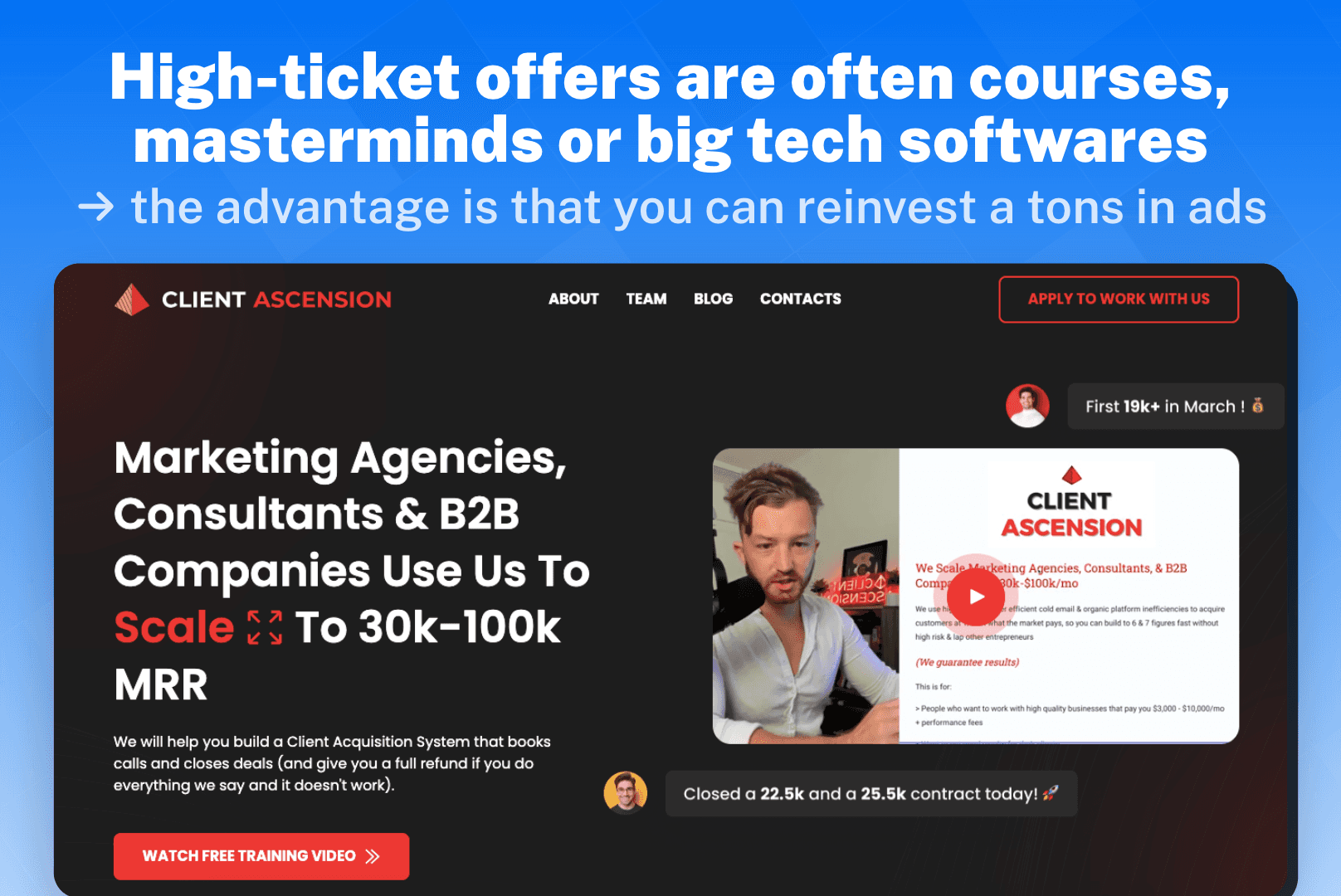
Additionally, due to the higher price point, high-ticket sales often involve a more tailored and personalized approach. Sales representatives can dedicate more time and attention to understanding the specific needs and preferences of potential buyers. This personalized approach can result in enhanced customer satisfaction and loyalty, as buyers feel valued and understood throughout the sales process.
Moreover, high-ticket sales can contribute to a brand's perception of exclusivity and prestige. By offering luxury or top-of-the-line products, businesses can attract a specific target audience willing to invest significant resources in obtaining these premium offerings. This positioning allows businesses to differentiate themselves from competitors and establish a reputation for quality and excellence.

Furthermore, high-ticket sales often come with additional opportunities for upselling or cross-selling. Once a buyer has committed to a high-value purchase, there may be opportunities to offer complementary products or services that enhance the overall value and experience. This can further increase revenue and customer satisfaction.
1.3 - Disadvantages of High-Ticket Sales
While high-ticket sales offer numerous advantages, there are also some potential challenges to consider. One of the main drawbacks is the narrower pool of potential buyers. The high price point naturally limits the number of individuals or businesses capable or willing to make such a substantial investment. Consequently, businesses engaging in high-ticket sales must focus on identifying and targeting the right audience to maximize their chances of success.
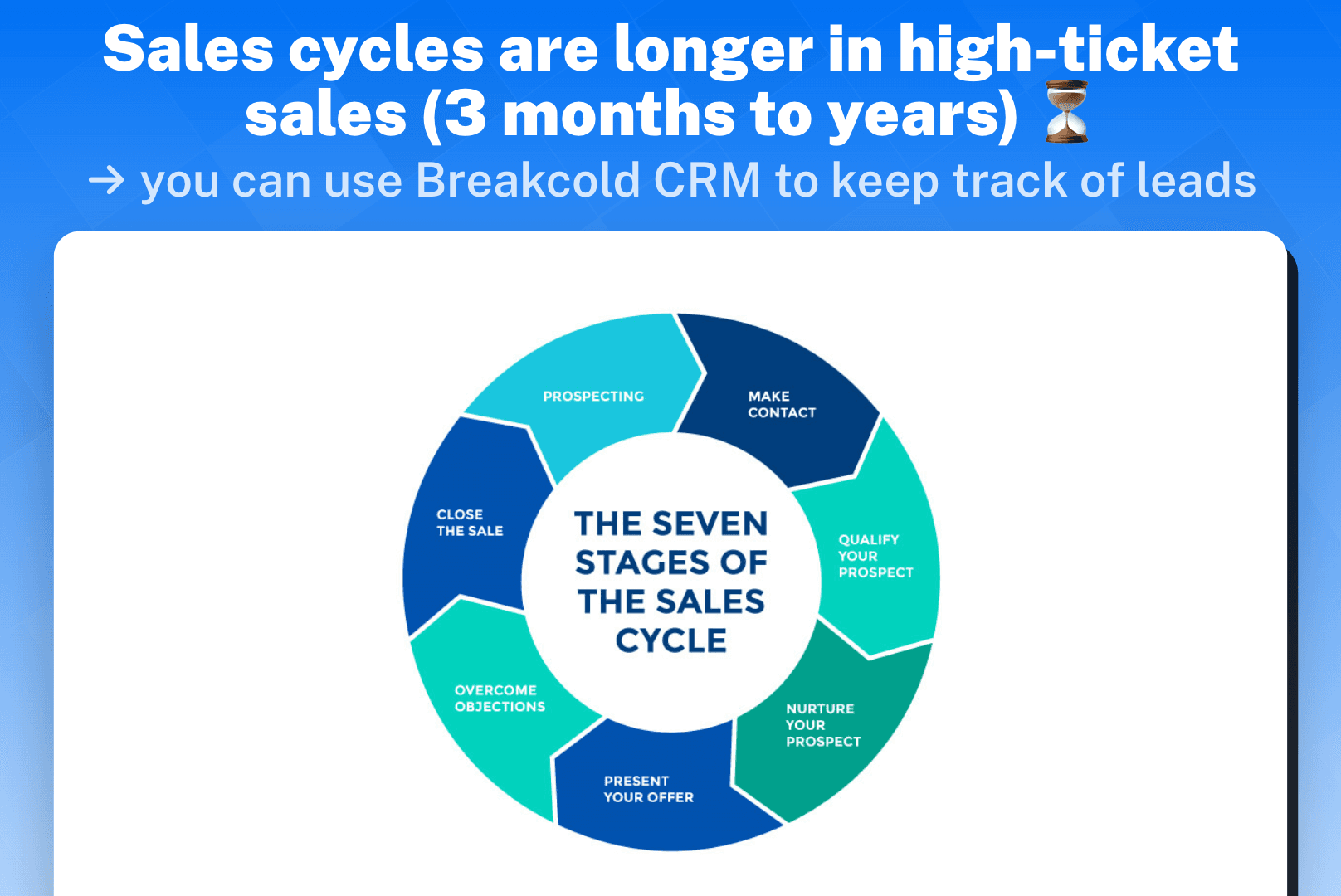
Additionally, the sales cycle for high-ticket items often takes longer due to the increased complexity and the need for more in-depth discussions and negotiations. Potential buyers may require more time to evaluate the value and benefits they will receive, as well as to address any concerns or objections they may have. This lengthier process can require more significant resources in terms of time and manpower, potentially reducing the overall efficiency of the sales operation.
To stay organized through this process, you can use a sales pipeline software.
Finally, in industries where customer demands and preferences rapidly evolve, businesses engaged in high-ticket sales must stay ahead of the curve. They need to continuously adapt their offerings to remain relevant and address changing needs and trends. This requires ongoing market research, product development, and a proactive approach to understanding and meeting customer expectations.
2°) Examples of High-Ticket Sales
Now that we have explored the concept of high-ticket sales, let's take a closer look at some real-world examples that illustrate its application in different contexts. Sales teams are usually the ones selling High-Ticket offers and store every interactions in their CRM.
2.1 - Example in a Startup Context
Imagine a startup that has developed groundbreaking technology for renewable energy solutions. They are selling large-scale solar power systems to commercial establishments. Since these systems require a significant upfront investment and have the potential to generate substantial cost savings in the long run, they fall under the high-ticket sales category.
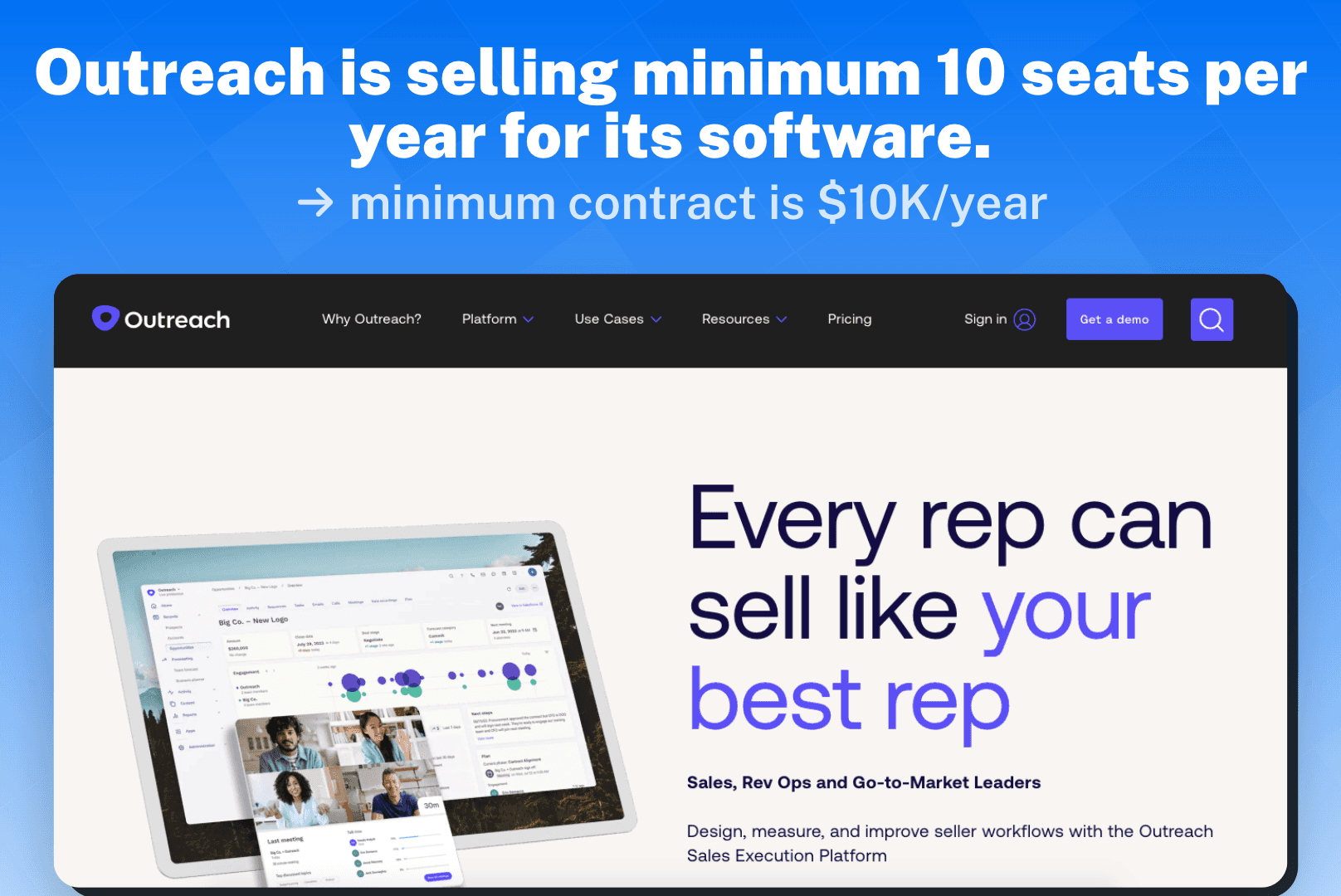
The startup's sales team engages in targeted marketing campaigns, focusing on organizations with high energy consumption and a commitment to sustainability. They utilize a consultative selling approach, educating potential clients about the benefits of their systems and providing comprehensive proposals tailored to each organization's specific needs and energy requirements.
2.2 - Example in a Consulting Context
In the consulting industry, high-ticket sales often involve providing specialized expertise to clients. For instance, a management consultancy may offer strategic planning services to large corporations. These services require a deep understanding of the industry, extensive data analysis, and the ability to develop customized strategies that drive long-term growth and profitability.
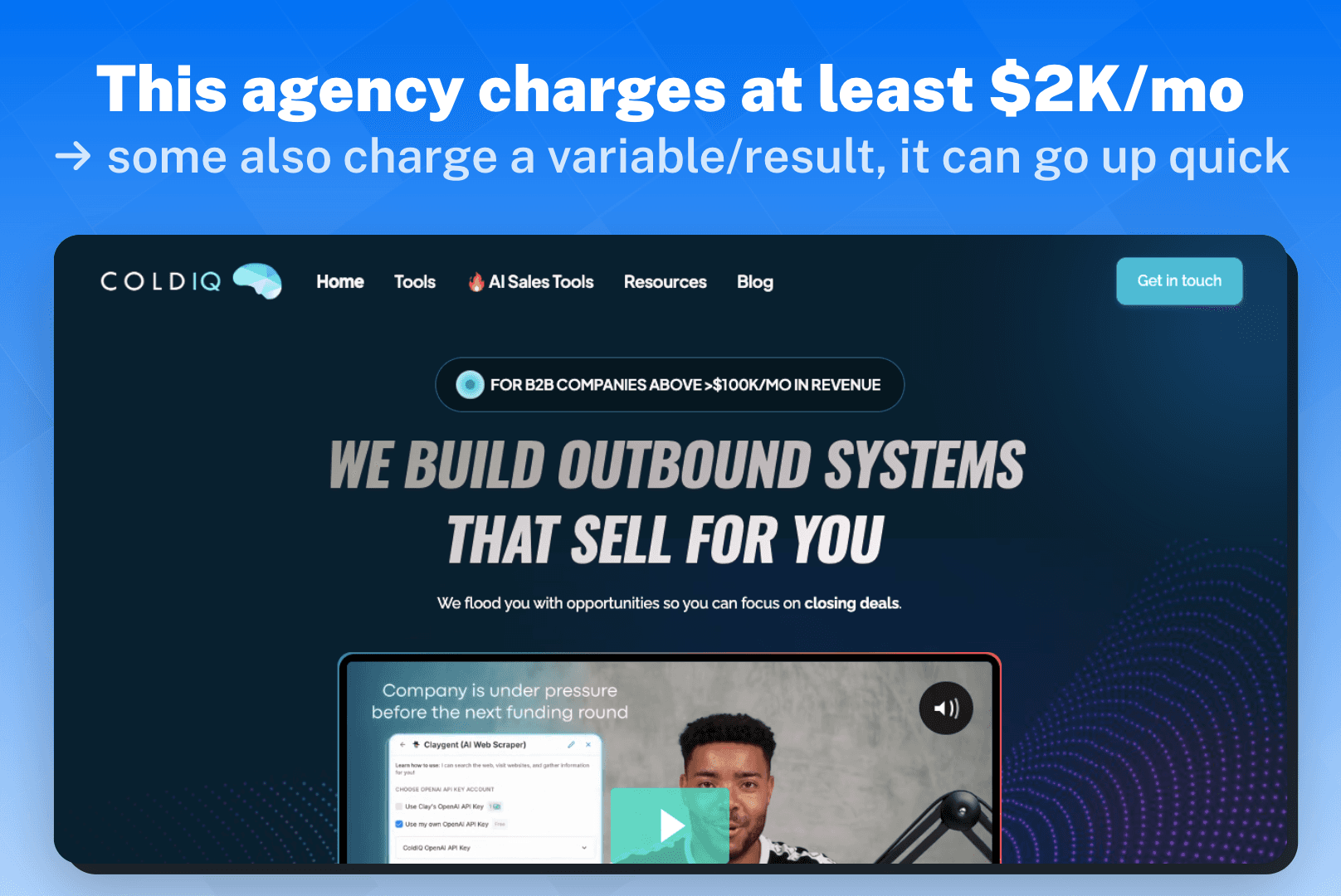
The consultancy's sales team focuses on building relationships with high-level decision-makers through networking events and targeted outreach. They emphasize the value of their expertise and track record of delivering tangible results for clients. By demonstrating the potential return on investment from hiring their services, they position themselves as a trusted partner capable of driving significant business outcomes.
2.3 - Example in a Digital Marketing Agency Context
Another example of high-ticket sales can be observed in the digital marketing industry. A specialized agency may offer comprehensive digital marketing solutions to small businesses aiming to establish a strong online presence and drive customer acquisition.
The agency's sales team identifies key pain points for small business owners, such as limited marketing knowledge and time constraints. They emphasize the benefits of a comprehensive digital marketing strategy, including search engine optimization, social media management, and targeted advertising campaigns. By showcasing success stories of similar businesses, they highlight the potential for increased revenue and customer engagement, positioning their services as valuable investments.
2.4 - Example with Analogies
Analogies can also be used to further illustrate the concept of high-ticket sales. Just as purchasing a luxury car provides a more refined driving experience and higher status compared to a standard vehicle, engaging in high-ticket sales enables businesses to offer premium products or services that deliver exceptional value and exclusivity to customers.
Similarly, just as travelers might choose to splurge on a first-class flight or a luxury hotel to enhance their overall travel experience, customers in certain industries may opt for high-value offerings that provide superior quality, personalized service, and unique features.
Conclusion
In conclusion, high-ticket sales involve selling high-value products or services that carry a significant price point. While they offer advantages such as increased revenue, personalized customer experiences, and brand differentiation, businesses must also navigate potential challenges, including a narrower customer base and a more complex sales cycle.
By examining examples in different contexts, such as startups, consulting, and digital marketing, we can see how high-ticket sales strategies are applied to cater to specific customer needs and drive business success. Analogies further illustrate the concept, emphasizing the added value customers can expect from investing in high-ticket offerings.
Ultimately, understanding and effectively implementing high-ticket sales techniques can help businesses enhance their profitability, build strong customer relationships, and establish themselves as leaders in their respective industries.











































































































































































































